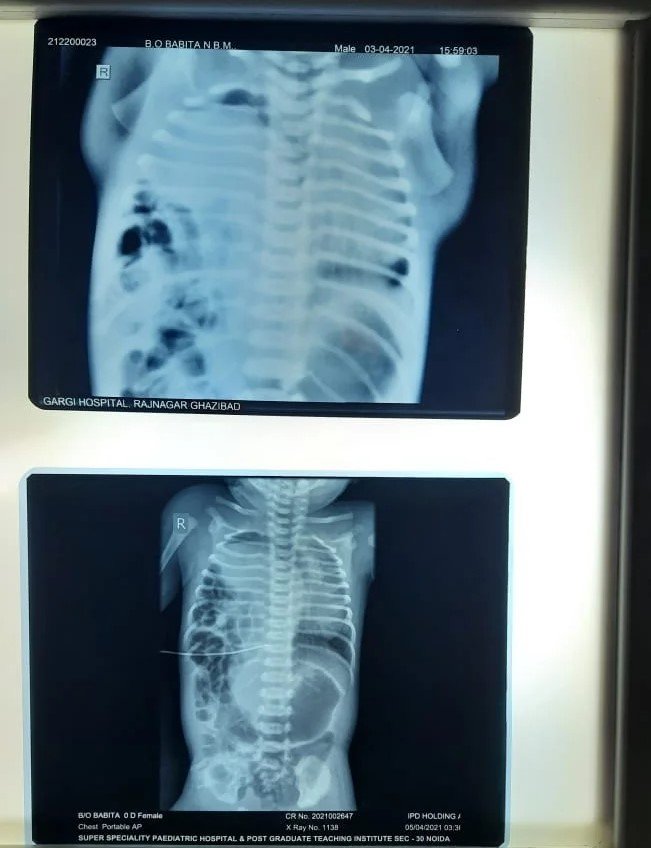Neonatal Intestinal Obstruction
Hme » Neonatal Intestinal Obstruction
Neonatal Intestinal Obstruction – Early Diagnosis Can Save Lives
Neonatal intestinal obstruction is a serious condition seen in newborns where the normal passage of contents through the intestines is blocked. It is often caused by congenital (present from birth) anomalies and requires urgent medical attention. Early diagnosis and timely surgical or non-surgical intervention are crucial for a good outcome.
Common Symptoms to Watch For
Parents and caregivers should be alert to the following signs in a newborn:
Abdominal Distension: The baby’s stomach appears swollen, tight, or unusually large.
Green-Colored Vomiting (Bilious Vomiting): Green bile-stained vomit is a red flag indicating obstruction beyond the stomach.
Failure to Pass Meconium: The newborn doesn’t pass stool (meconium) within the first 24–48 hours after birth.
Feed Intolerance: The baby is unable to keep feeds down, vomits repeatedly, or refuses to feed.
These symptoms often begin within the first few days of life and must not be ignored.
Common Causes of Neonatal Intestinal Obstruction
Duodenal or jejunal atresia
Malrotation with volvulus
Meconium ileus (often associated with cystic fibrosis)
Hirschsprung’s disease
Anorectal malformations
Intestinal webs or strictures
Diagnosis
Prompt diagnosis is essential. Tests include
Abdominal X-ray: To check for air-fluid levels and bowel gas pattern.
Ultrasound abdomen: Especially useful in suspected malrotation or volvulus.
Contrast studies: Help identify the exact location and cause of obstruction.

Treatment Options
Treatment depends on the cause:
Initial stabilization: Includes IV fluids, nasogastric tube placement, and antibiotics.
Surgery: Most cases require surgical correction of the blockage.
Post-operative care: NICU support, gradual feeding, and monitoring for complications.
Conclusion
Neonatal intestinal obstruction is a medical emergency. If your newborn has green vomiting, bloating, or feeding issues, seek pediatric surgical care immediately. Early intervention can ensure a full recovery and healthy development.

